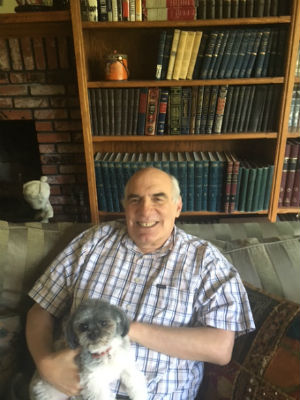Our Torah is a unique holy book and it is like none other. The torah takes us on a journey towards the Promised Land, but we never get there. The people who are in charge of our journey fail in their attempts at leadership. Our Torah portrays our leaders as fallible, mortal, and prone to human error. Aaron helps make the golden calf, two of his sons die in the midst of a sacrificial service. Miriam speaks badly of her brother Moses and suffers some sort of skin disease. Moses in anger strikes a stone and shows disrespect for God before all the people. And the people themselves are a mixed multitude always ready to display disregard for God, even though their lives are blessed with miracles. They are on their way to freedom, but seek to return to Egypt when trials arise in the desert. Their journey, which could have been completed in less than two weeks, is not complete even after forty years of wandering.
While they give up on God, God usually does not give up on them. He gives them chance after chance, but never brings them to the Promised Land in Moses’ lifetime. Their deeds keep them in exile. In the beginning they were a wandering people. “An Aramean nomad was my father,” the Torah holds (Deuteronomy 26:5). Rashi adds that Laban wanted to steal all that Jacob had. God considered Laban’s evil thought and counted it against him. In time, because of famine we had to emigrate to Egypt, but the Egyptians enslaved us and did not consider us as people, did not recognize the dignity that is the warp and woof of every human being. God recognized the wicked thoughts and immoral actions of the Egyptian people and brought us to the desert and to freedom. God taught us again and again that thoughts have consequences, that all people’s acts have consequences.
So God did not redeem us. The Almighty brought us to the desert, but not to the Promised Land. To inherit that land we had to fight in large part because we did not learn the lessons of the behavior of Laban or of the Egyptians. We were God’s chosen, chosen for freedom, but we did not earn the right to be free at the end of forty years. The next books of the Bible, Joshua, Judges, Samuel and Kings describe unethical, immoral and sinful lives we lived in the Promised Land, where we saw the destruction of two Temples and from which we were exiled for two millennia.
We are a sinful people in a sinful world. Our leaders are fallible, and we are fallible. The kinds of lives we live have created the kind of world in which we live. Too many people do not have clean water to drink. Too many of our children suffer asthma from the polluted air they breathe. Too many young people in the prime of life have lost their lives to gun violence. Too many have died from chemical warfare. Too many are threatened by nuclear weapons.
Too many people read the Bible and believe that we suffer because of our failure to do ritual commandments. It seems that no one considers the ethical indisgressions—the sins of Cain, of the generation of Noah and Babel, of Sodom, of Laban, of Egypt, or of the Children of Israel which caused them to wander for forty years in the desert.
We have all violated one commandment, the same commandment the world has transgressed since the time of Cain, a commandment which applies to Jews and Gentiles alike.
What is the sin of the world?
What was our sin, the same sin as theirs, which we have transgressed for thousands of years? What was the sin of Laban and of the Egyptians? It was not ritual. It had nothing to do with sacrifice or even the devotion we might have had toward the Almighty. Our sin and the sin of those around us both in the time of the Torah and in our own time is our failure to recognize the human rights of all people as both inherent and sacrosanct.
The sin of disregarding human rights remains a basic immorality practiced by so many people in the world today. We see it on the front pages of the newspapers when we read about the people of Syria and Iraq. It is evident in those Israelis who equate the right to live on the West Bank as an inherent Jewish right without any regard for the Palestinians who are being displaced. It is evident in the statements of those who aver the Arab right to live in Israel, but not the Jewish right to the State of Israel. We see it in an America, when we threaten undocumented immigrants who work hard and pay their taxes, but chose to live here to escape the oppression of the lands in which they were born. These are but a few contemporary examples.
So, metaphorically, we are still in the desert. We have not yet learned the lessons of our biblical search for the Promised Land. And what is more, we live in a world in which many people profess to believe that the Bible is a holy book, but live as if they have never read that book.
The sadness is not that “an Aramean nomad was my father.” The sadness is that we have become the Arameans.
Aaron Kriegel is a retired rabbi who served congregations in California for 42 years. He was constantly in the forefront of those who struggled for human rights. He organized one of the first Holocaust/Genocide commemorations, testified at a Whitewater trial in Arkansas and fought for the rights of hotel employees in Los Angeles. His Judaism demands recognizing that all people are created in the image of God. He is married and the father of three.


